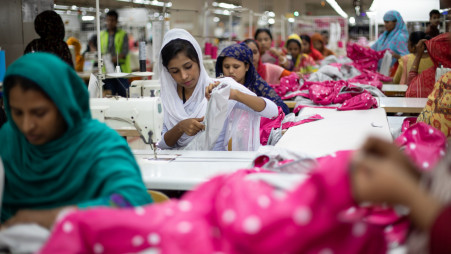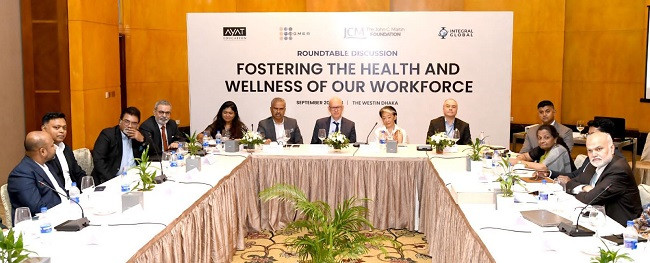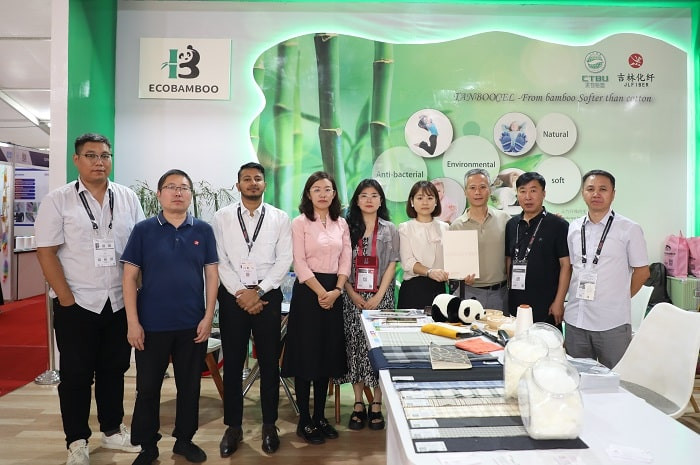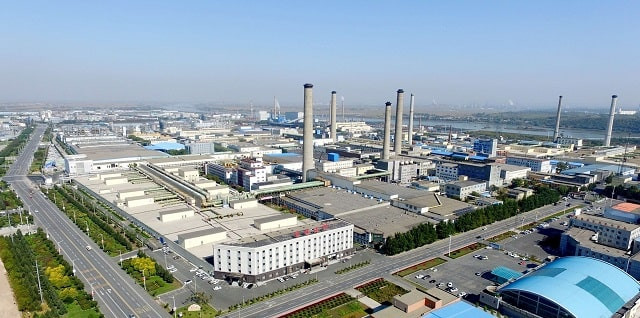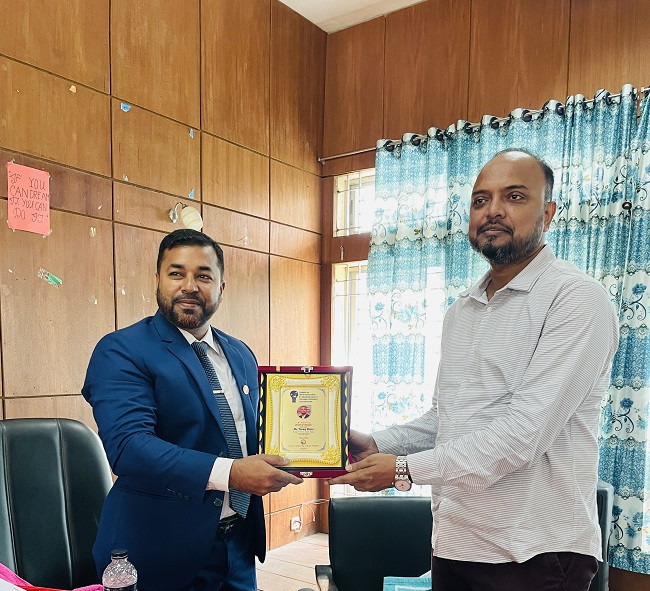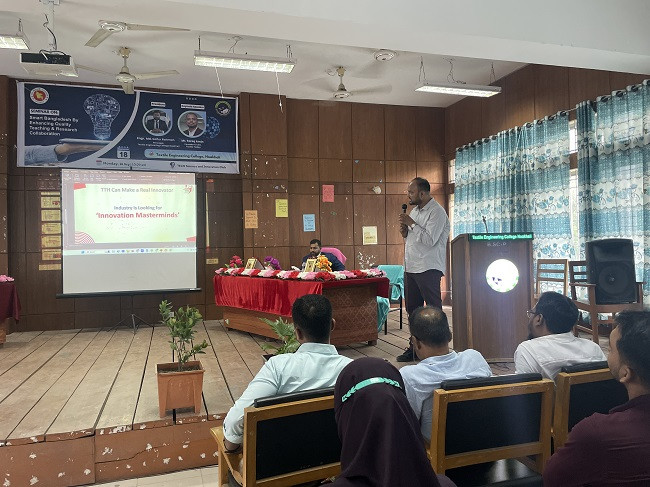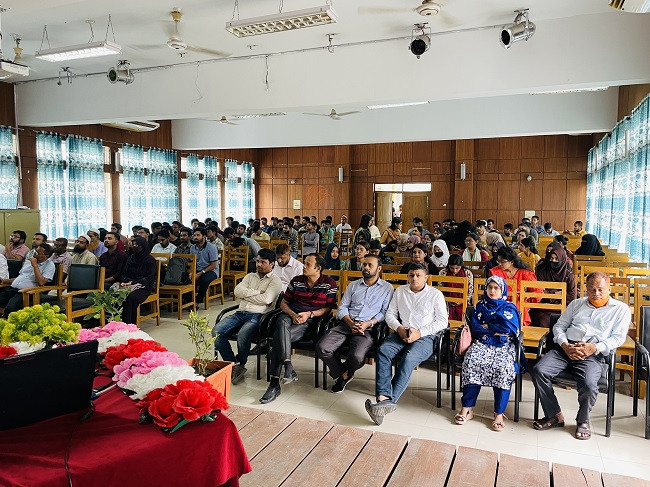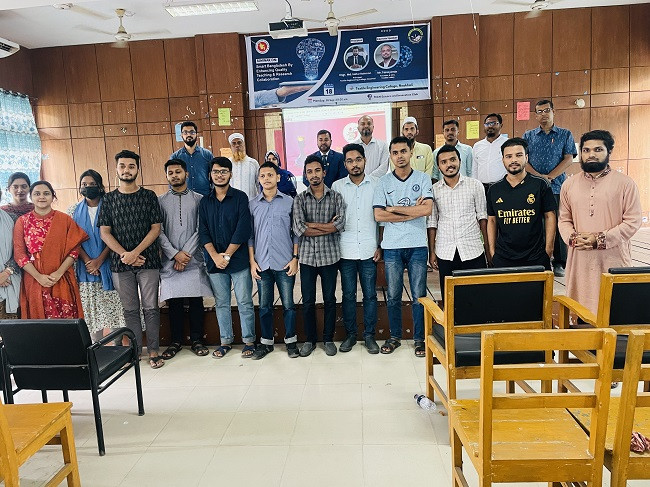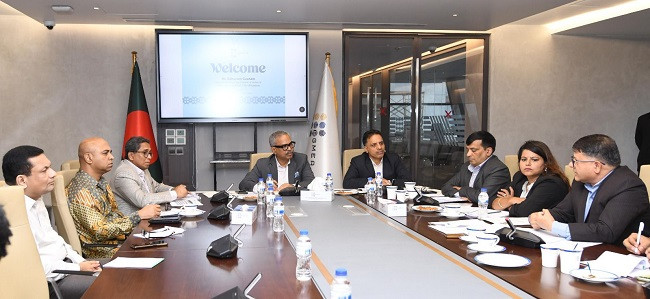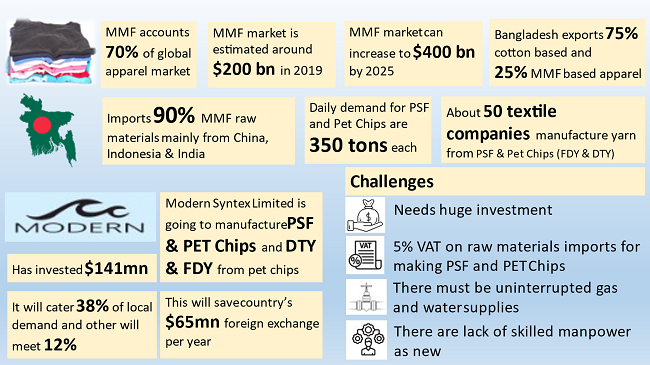An ongoing Brac University survey has found that most of the country’s ready-made garment (RMG) factories are ensuring good social practices such as healthcare services, daycare centres, insurance, fair price shops and menstrual hygiene products for workers.
Mapped in Bangladesh (MiB) – a project of the Centre for Entrepreneurship Development (CED) of Brac University – is conducting the survey, which is now in its second phase, to identify environmental, social, and governance (ESG) practices among the export-oriented apparel industries, according to its officials.
The survey also found that some factories are also ensuring good environmental practices by installing solar energy and using energy-efficient LED lights.
However, factories are not willing to share information about governance issues, which may require more awareness, said MiB officials at a discussion with journalists at a city hotel on Tuesday.
Afsana Choudhury, joint director of the CED, said the second phase of a physical survey also has the aim to gather information about new factories, especially those that came into operation after 2020.
In this regard, the CED signed separate memorandums of understanding with the Bangladesh Garment Manufacturers and Exporters Association (BGMEA) and the Bangladesh Knitwear Manufacturers and Exporters Association (BKMEA).
Through these MoUs, both associations became “strategic partners” of the project and provided tremendous support for the collection of factory data from their member factories all over Bangladesh.
In the second phase, MiB already conducted a survey across the country except for Gazipur, Narayanganj and Chattogram districts. Data will be collected from these districts and updated to the MiB database by June 2024, said Afsana Choudhury.
She also mentioned that this mapping process requires timely updates as data on workers and brands are frequently changing, and in most cases, factory management is not willing to share data with us.
The MiB has already launched a Bangla edition of this map for workers and rights groups and a cloud-based application is also ready for formal launching, said Afsana Choudhury.
“The application will be more user-friendly, allowing the factory management and workers to update relevant factory data in an easier way,” she added.
“Earlier this map was mainly web-based. But considering that most users are using this map from mobile phones, we developed the app,” said Jabeer Sherazy, senior system development coordinator at BRAC University.
The second phase of the project, to be implemented by 2025, is funded by the Laudes Foundation and GIZ and supported by the Department of Inspection for Factories and Establishments (DIFE) under the Ministry of Labour and Employment.
The project has built a digital map www.mappedinbangladesh.org for export-oriented RMG entrepreneurs to showcase their products and skills to a global audience.
With the help of this digital technology, MiB will help bridge the Bangladeshi RMG sector and international markets. MiB is also promoting transparency and traceability by digitising the supply chain of the apparel industry and visualising it to the world.
MiB has been guided by a multi-stakeholder Project Advisory Committee (PAC), including representatives of workers, NGOs, donors, researchers, buyers and industry associations, among others.
With the support of all industry stakeholders, MiB expects to create a digital ecosystem that connects fashion designers, manufacturers, suppliers, brands, and consumers in Bangladesh and all over the world.





